

Let us say, we have a List that contains three names, 'Mohan', 'Kriti' and 'Salim'. And we want to remove 'Kriti' from the List.
It can be done with the 'remove( )' Function
x = ["Mohan", "Kriti", "Salim"]
x.remove("Kriti")
print(x)
So, in the above code we have created a 'List' and initialised to the variable 'x'.
Below is how the values are positioned in the List,
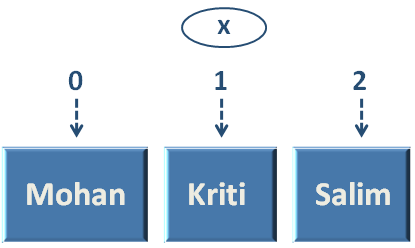
Next, we have used the 'remove( )' function that searches for the name 'Kriti' and removes it from the List.
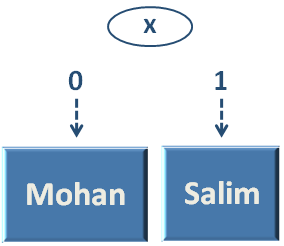
And we get the below output,
Let us say, we have a List that contains three names, 'Mohan', 'Kriti' and 'Salim'. And we want to remove the element at index/position '2' from the List.
So, we can use 'del' keyword or the 'pop( )' function to remove an element from the List.
Let us see the example with 'del' keyword first.
x = ["Mohan", "Kriti", "Salim"] del x[2] print(x)
So, in the above code we have created a 'List' and initialised to the variable 'x'.
Below is how the values are positioned in the List,
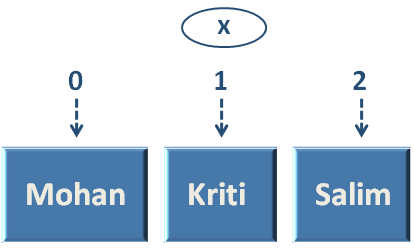
Next, we have used the 'del' keyword that searches for the element at index/position '2' and removes it from the List.
And as we can see, there is 'Salim' at index/position '2'. So 'Salim' is removed from the List.

And we get the below output,
Next, let us look at the same example using 'pop( )' Function.
x = ["Mohan", "Kriti", "Salim"] x.pop(2) print(x)
So, in the above code we have created a 'List' and initialised to the variable 'x'.
Below is how the values are positioned in the List,
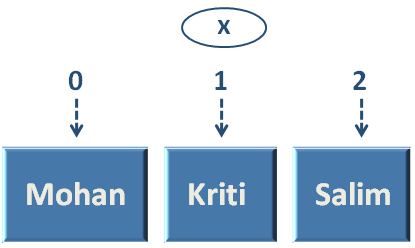
Next, we have used the 'pop( )' function that searches for the index/position '2' and removes it from the List.
And as we can see, there is 'Salim' at index/position '2'. So 'Salim' is removed from the List.
And we get the below output,
The 'pop( )' Function can be used to remove an item from the end of the List. If no index is specified at the parameter of 'pop(( )' Function then it removes the last element by default.
x = ["Mohan", "Kriti", "Salim"] x.pop() print(x)
So, in the above code we have created a 'List' and initialised to the variable 'x'.
Below is how the values are positioned in the List,

Next, we have used the 'pop( )' function that searches for the lat value by default(As no index is specified) and removes it from the List.
And as we can see, there is 'Salim' at the end of the List. So 'Salim' is removed from the List.
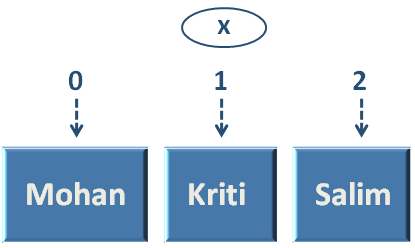
And we get the below output,
The 'clear( )' Function can be used to remove all the elements from the List.
x = ["Mohan", "Kriti", "Salim"] x.clear() print(x)
So, in the above code we have created a 'List' and initialised to the variable 'x'.
Below is how the values are positioned in the List,
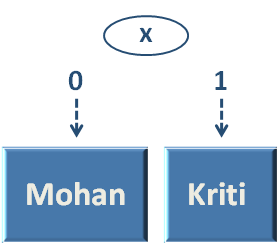
Next, we have used the 'clear( )' function that removes all the elements from the List making the List empty.
And we get an empty List as output,